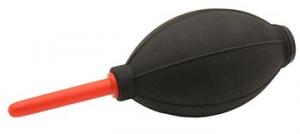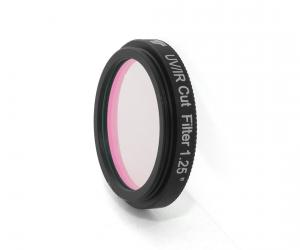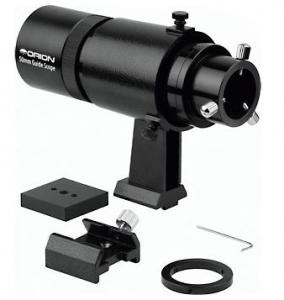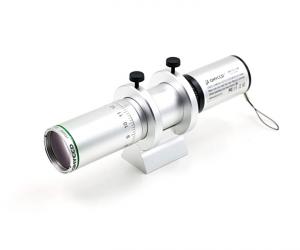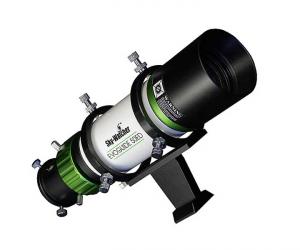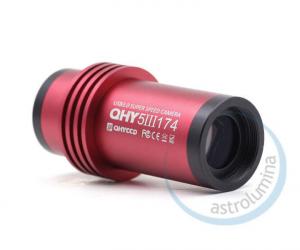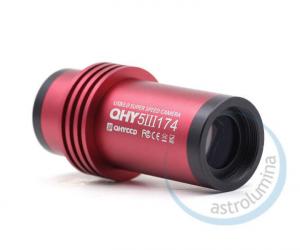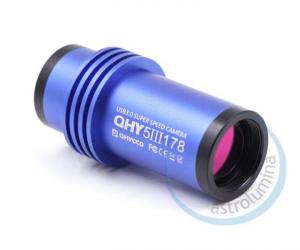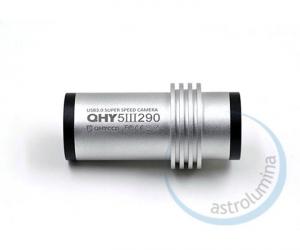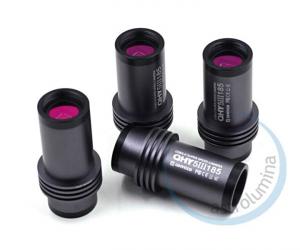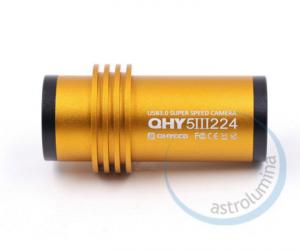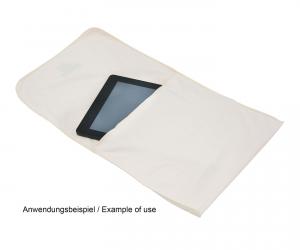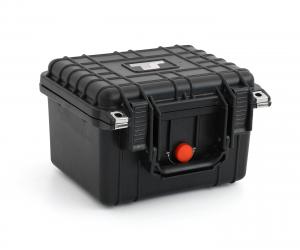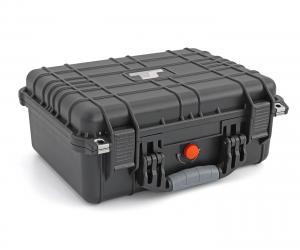- Telescopes
- Overview:
Telescopes - Achromatic Refractor
- Apochromatic Refractor
- Overview:
Apochromatic Refractor - ED Refractor - less color aberration than an achromatic
- SD APO - color free 2-element APO objective
- EDT APO - 3 element ED objective
- High End APO with 3-element APO objective - no color aberation
- Flatfield APO with flat field for Astrophotography
- All Apos and EDs from all manufacturers - large overview
- TS APO and ED from Japan with high quality optics
- Overview:
- Newtonian Telescopes
- Dobsonian Telescopes
- RC Ritchey Chretien Telescopes
- Casssegrain Telescopes
- Reflektor Telescopce with Lens Correcture
- Maksutov Cassegrain Telescopes
- GoTo Telescopes
- Solar Telescopes H-Alpha
- Overview:
- Mounts Tripods Rings Rails Power Supply ...
- Overview:
Mounts Tripods Rings Rails Power Supply ... - Mounts Equatorial with GoTo
- Mounts Equatorial without GoTo
- Mounts Azimutal with GoTo
- Mounts Azimutal without GoTo
- Mounts GoTo - Harmonic Drive
- Travel mounts for astro imaging
- Tripods Piers Polar Wedges
- Mount Control & Electronics
- Dovetail Clamps, Plates and Mount Adapters
- Tube Rings
- Power Supply
- Counterweights Balance Weights
- Mount Accessories - Other
- Overview:
- Telescope Accessories
- Overview:
Telescope Accessories - Eyepieces
- Barlows & Reducer Lenses
- Diagonal Mirrors and Prisms
- Binocular Viewers
- Finder Scopes
- Telescope Collimation and Test
- Cleaning Tools
- Transport and Storage
- Dust protection for Telescopes & Accessories
- Stray Light Protection
- Dewcaps and Heater
- Focusers, Adapters, Motorfocus
- Telescope DIY & Improvement
- Other telescope accessories
- Replacement Parts
- Overview:
- Filters
- Overview:
Filters - Color Filters and Color Filtersets
- Nebular Filters for Visual Observing
- Neutral-Density and Polfilter
- Photo Narrowband Nebular Filters
- Photo Broadband Filters
- Photo Planetary Filters
- Photo R-G-B and IR Cut Filters
- Photo - Filtersets
- Photometric Filters
- Clip Filter for DSLR Cameras
- Filter Wheels and Filterslider
- Solar Filters for white light
- Solarfilter for H-Alpha and Calcium
- Overview:
- Adaptors
- Overview:
Adaptors - Adapter 1,25" and 24,5mm
- Adapter 2"
- Adapter T2 - M42x0.75
- Adapter M48x0,75
- Adapter M54
- Adapter SC
- Adapter M63
- Adapter M68
- Adapter to other Threads
- Adapter Extensions
- Adapter camera bayonet
- Adapter Objective Filterthread
- Adapter Quick Changing , Rotation
- Adapter Eyepiece Projection
- Adapters Tilting
- Overview:
- Astrophotography and Photography
- Overview:
Astrophotography and Photography - Cooled Cameras
- Cameras without Cooling
- Deep-Sky Cameras uncooled
- Set-Offers Camera, Filter, Wheels
- Acessories for Cameras
- Travel mounts for astro imaging
- Imaging Correctors for Telescopes
- Autoguiding Cameras & Sets
- Everything for Guiding
- Focusing aids - Bahtinov mascs
- Flat Field foils and boxes
- Lenses for Cameras
- Piggyback Camera Holder
- Camera Bags, Photocases & more
- Digital Camera and Smartphone Adapter
- Other photo accessories
- Overview:
- Binoculars, Spotting Scopes, Microscopes, Range Finders
- Overview:
Binoculars, Spotting Scopes, Microscopes, Range Finders - Roof Prism Binoculars
- Binoculars with Porro prisms
- Binoculars from 100mm Aperture
- Binoculars with 1,25 inch eyepieces
- TSMX APO Binoculars
- Binoculars for Astronomy
- Binoculars Hiking Bird watching
- Monoculars - Opera Binoculars
- Accessories for Binoculars
- Spotting Scopes
- Range Finders
- Microscopy
- Bags for Phototripods & Binoculars
- Overview:
- Phototripods and Binomounts
- Books, Software
- Overview:
Books, Software - Books for Astronomy Beginners
- Star Charts and Planispheres
- Books about our Solar System
- Observing Tips for Amateurs
- Popular Astronomy Literature
- Teaching material
- Astrophotography books
- Telescopes, Observatories, Construction
- Calendars Yearbooks
- Software, Star Charts
- Books for Microscopers
- Books Nature and Animals
- Nature Photography TimeLapse
- Overview:
- Night Vision, Magnifiers, Weather, Domes & more
- Beginner Astronomy and Gift Ideas
- Second Hand & Special Offers
- New products
Manufacturer: QHY Kameras
Product number: AL110184
EUR517.00new
EUR 517,00
incl. 19 % VAT (DE)
The VAT indicated refers to that applicable in Germany. After logging in, the VAT amount is adjusted to the applicable VAT of the stored delivery country. Therefore, the final price may vary accordingly.
excl. 6.95 € shipping costs (DE)
more details to the shipping costs ...Please log in to calculate shipping costs to your country.
There are no reviews for this product
- Details..
- Technical data..
- In the box..
- Manufacturer infos..
- Safety informations..
Astrolumina Alccd-QHY5III568M - fast monochrome CMOS Camera
QHY5III568M/C is a back-illuminated planetary & guiding camera of the latest 5III V2 series. Thanks to the back-illuminated technology, it is especially sensitive. The camera utilizes a global shutter, and supports true hardware binning. It can reach a super-high speed at about 304fps with nearly 1080p resolution.Sensor
One benefit of the back-illuminated CMOS structure is improved sensitivity. In a typical front-illuminated sensor, photons from the target entering the photosensitive layer of the sensor must first pass through the metal wiring that is embedded just above the photosensitive layer. The wiring structure reflects some of the photons and reduces the efficiency of the sensor.
In the back- illuminated sensor the light is allowed to enter the photosensitive surface from the reverse side. In this case the sensor?s embedded wiring structure is below the photosensitive layer. As a result, more incoming photons strike the photosensitive layer and more electrons are generated and captured in the pixel well.
The ratio of photon to electron production is called quantum efficiency. The higher the quantum efficiency the more efficient the sensor is at converting photons to electrons and hence the more sensitive the sensor is to capturing an image of something dim. With the IMX568-AAMJ from Sony, the maximum quantum efficiency is approx. 86%.
Shutter
Unlike the rolling shutter technology used in most CMOS cameras, a global shutter guarantees that the exposure time for the whole image area is uniform, beginning and ending at exactly the same time. This type of shutter is ideal for high precision applications. For high speed moving object and the atmospheric agitation the global shutter can generate undistorted imaging and realizes high picture quality.
FD binning (hardware binning)
Unlike most CMOS cameras, the camera supports charge-domain binning (FD binning), which is the true hardware pixel binning similar to CCD cameras.
In the past, only CCD sensors were capable of hardware binning. Most CMOS cameras used digital binning, which relied on algorithms for binning. The disadvantage of this binning method (using 2*2 binning as an example) is that while the signal is amplified by 4 times, it also introduces twice the amount of noise, resulting in only a doubling of the signal-to-noise ratio, and then frame rate can not be improved. In contrast, hardware binning does not amplify additional noise, resulting in a direct 4-fold improvement in the signal-to-noise ratio. What?s more, the frame rate can increase a lot even the ROI function is not activited.
512 MB DDR3
The QHY5III (Ver. 2) series planetary and guiding cameras are all equipped with a 512 MB DDR3 image buffer which can effectively reduce the pressure on computer transmission, a great help for planetary photography which often requires writing a large amount of data in a short period of time. Some deep-sky astrophotography cameras on the market today only have 256 MB, for example.
In comparison, the 512 MB DDR3 memory of the new 5III (Ver. 2) series cameras represents a significant upgrade.
New front-end design with better compatibility
QHY5III (Ver. 2) series cameras have adopted a new front-end design with better compatibility. All V2 cams in the future share these features.
The BFL of V2 cam is only 8 mm, which means you can easily compat a V2 cam with your OAG. The basic top adapter includes 1.25 inch threads and you can still use your 1.25 inch filter.
The top adapter glass of V2 can be easily switched. One of the advantage of changeable top glasses is you can use one filter even you´re using a lens! You can add a 1.25 inch-cs adapter to connect CS lens, or add a CS-C adapter for C-mount lens. The two adapters are all standard accessories of V2 cams.
Body
The housing shape is designed so that the camera, like the proven ALccd-QHY 5-II models, fits into standard 1.25" focusers or adapters. The fins provide for a fast and selective dissipation of the heat which is produced during the exposure.
USB 3.2 Gen1 Type C Interface
The new QHY5III (Ver.2) series cameras all use the USB3.2 Gen1 Type-C interface. Compared to the USB3.0 Type-B interface used in the previous generation, the Type-C interface has a longer life and is more flexible.
Tips: It is recommended to use the official standard Type-C data cable of QHYCCD. As the market is flooded with a large number of poor-quality Type-C cables, casual use may lead to the camera malfunctioning. If you use your own spare cable, please make sure it is a high-quality cable.
Universal Guiding Interface
The custom interfaces of the previous generation of planetary cameras and guiders has been replaced in the QHY5III (Ver.2) cameras with a more universal ST-4 compatible guiding interface. Now, even if the guiding cable is lost or damaged, you will be able to easily get a replacement on the market at a low cost.
Indicator LED
The new QHY5III (Ver.2) series of cameras is equipped with a status indicator at the back of the camera. If the camera experiences an abnormal status, the multi-colored indicator light will help to determine the situation with different colors signifying different conditions. During normal operation this indicator light is off, so there is no worry about light contaminating the image.
System requirements
The camera has an advanced electronics that makes a PC with USB 2.0 support necessary. The maximum performance can be reached only with a powerful USB 3.0 computer.
The operating software is Windows 7, 8 and 10 compatible and supported by 32- and 64-bit.
We recommend the ASCOM compatible software packages MSB AstroArt, PHD or MaxIm DL for the Autoguiding. For shooting the freeware SharpCap.
| Type: | Monochrome Sony 1/1.8" IMX568-AAMJ CMOS Sensor, back-illuminated |
| Active pixels: | 2472*2064 (5.1 megapixels) |
| Pixel size: | 2.74 µm x 2.74 µm (square pixels) |
| Chip size: | 6.7 x 5.6 mm |
| Quantum efficiency: | approx. 86% maximum |
| Fullwell: | 8.8 ke- at full resolution, 9.7 ke- at 2x2 binning |
| Die: | With microlenses |
| Readout type: | All-pixel scan, 2x2 FD binning |
| Shutter type: | Global |
| Binning: | 1x1 (2472x2064 pixels) and 2x2 (1236x1032 pixels) |
| Buffer memory: | 512 MB |
| Data depth A/D: | 12 bit |
| Data depth output: | 8 bit / 16 bit |
| Readout noise: | 1.5 e- to 2.3 e- at full resolution, 1.6 e- to 2.7 e- at 2x2 binning |
| Frame rate at full resolution: | 64.9 / 34.5 frames / second (8 bit /16 bit output) |
| Frame rate at 2x2 binning: | 304 / 152 frames / second (8 bit /16 bit output) |
| Interface: | USB 3.0 (backwards compatible with USB 2.0), Type-C interface |
| Exposure times: | 11 µs - 900 s |
| Anti-amp control: | yes |
| Cooling: | No cooling |
| Powered: | Via USB cable |
| Autoguider port: | ST-4, integrated (RJ-12) |
| Telescope connection: | 31.7 mm (1.25") barrel, CS-mount, C-mount |
| Back focus: | 17 mm with adapter, 8 mm without adapter |
| Optical window: | Multi-coated |
| Dimensions (DxH): | 40 mm x 77.5 mm |
| Weight: | 80 g |
| Manufacturer / Importeur: | Astrolumina Michael Breite |
| Street: | Alfred-Wirth-Straße 12 |
| ZIP / City: | 41812 Erkelenz |
| Country: | Deutschland |
| Telefon number: | +49 2431 9730725 |
| Email: | info@astrolumina.de |
| Website: | www.astrolumina.de |
Safety informations: PDF Download
Recommended accessories
Cleaning & Collimating
Customers who bought this product also bought...
Photo Acessories
TS-Optics 50 mm Guiding Scope and Finder Scope with 1.25" Receptacle
EUR 94,90RRP EUR 109,00you save 12.9% (EUR 14,10)
Skywatcher Evoguide 50ED - 50 mm ED Guide and Finder Scope
EUR 259,00RRP EUR 285,00you save 9.1% (EUR 26,00)
Similar Products
Transport & Covers
TS-Optics Optical Soft Microfibre Cleaning Cloth and Bag, 26x24 cm
EUR 8,99RRP EUR 11,95you save 24.8% (EUR 2,96)
TS-Optics Protect Case waterproof hard case - width 271 mm
EUR 34,98RRP EUR 44,95you save 22.2% (EUR 9,97)
TS-Optics Protect Case waterproof hard case - width 407 mm
EUR 62,90RRP EUR 74,90you save 16% (EUR 12,00)
Reviews


















